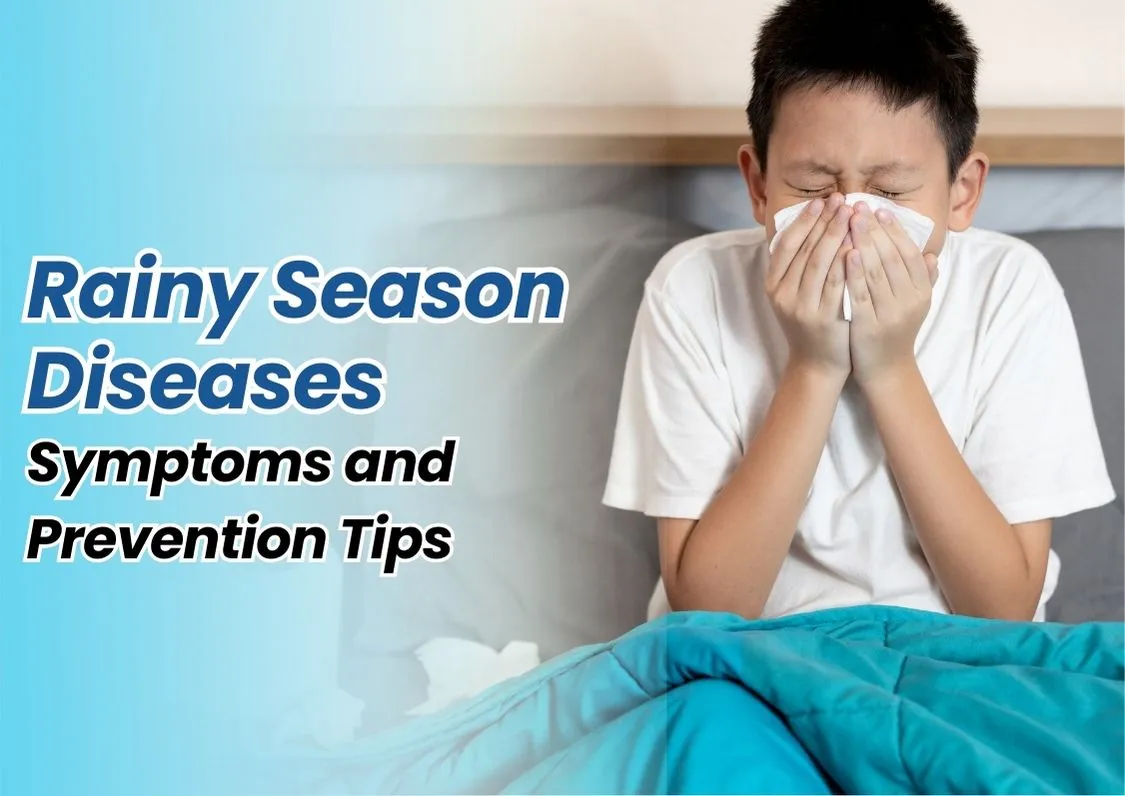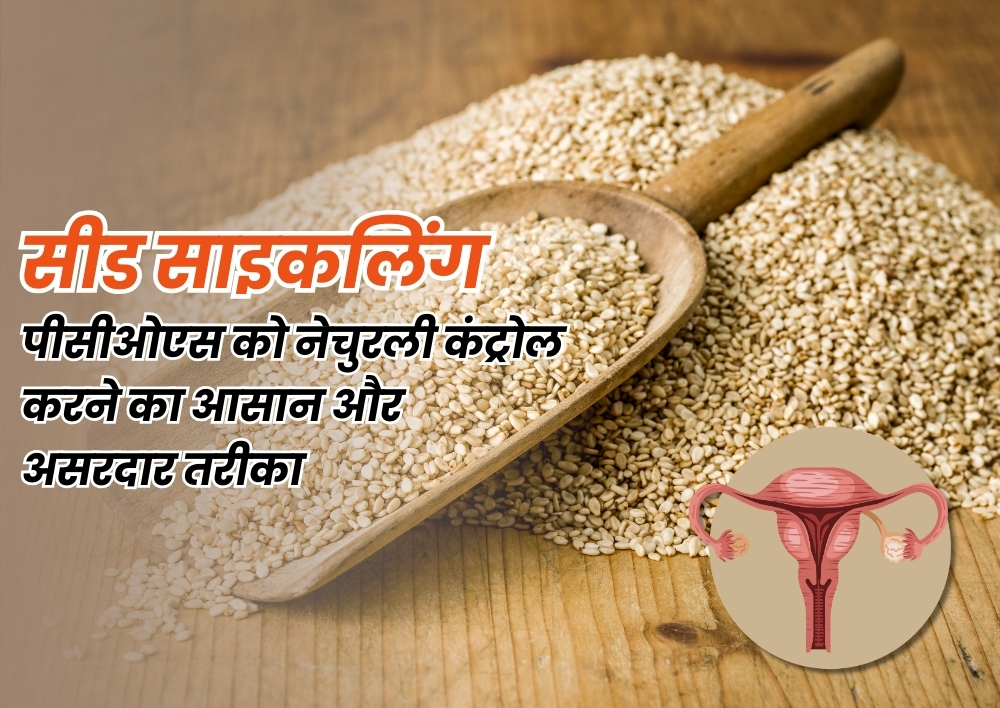Manage Menopause After Age of 40
A Female experiences countless physical and emotional changes throughout her life. From early youth to reproductive years and after, the female body experiences a wide range of changes. Menopause is one of the physical changes that a woman experiences after the age of 40 years or beyond. According to the World Health Organization (WHO), "Most women experience menopause between the ages of 45 and 55 years as a natural part of their biological aging"
Menopause is neither a disease nor any reproductive health disorder but a milestone that comes with its share of challenges in every woman's life. This natural process typically occurs around the age of 40, marking the end of a woman's reproductive years. During this normal phase of life, women experience several symptoms that impact their quality of life. Managing menopause requires attention not only to physical but also emotional and lifestyle factors.
If you or a loved one is over the age of 40 and expecting your transition to menopause, then this blog post is for you. In this blog post, the best gynaecologist in gurgaon at Miracles Apollo Cradle talks about menopause, its stages, the different signs of menopause, and how to manage this biological change after the age of 40 years.
What is Menopause?
Menopause is a natural biological process that is a normal part of aging which marks the end of a woman's reproductive years. It generally occurs around the age of 40 and beyond, although the exact age can vary from woman to woman. During menopause, a woman's ovaries slowly decrease their production of the hormones estrogen and progesterone, leading to the end of menstrual periods and the end of fertility. This transition is usually confirmed after a woman has gone without a menstrual period for 12 consecutive months.
This transition can bring about several symptoms due to hormonal changes, including hot flashes, night sweats, mood swings, vaginal dryness, and sleep disturbances. With proper care and support, women can navigate this transition with grace and continue to lead fulfilling lives.
Statistics of Menopause
According to a study by the National Institutes of Health (NIH), each year, 1.5 million women experience the menopause transition. However, only a few people around the globe know in-depth about menopause and how the transition to menopause affects the quality of life
10 Common Signs of Menopause at 40
Menopause brings about a range of symptoms, which can vary in intensity and duration for each woman. Some common menopause symptoms include:
-
Hot flashes: Sudden feelings of extreme heat, along with sweating and flushing of the face and neck.
-
Night sweats: Similar to hot flashes but occurring during sleep, leading to waking up feeling drenched in sweat.
-
Mood swings: Fluctuations in mood, including irritability, stress, depression, and mood swings.
-
Vaginal dryness: Reduced lubrication in the vaginal area is normal during menopause, leading to discomfort or pain during intercourse.
-
Sleep disturbances: Difficulty falling asleep or staying asleep, usually due to hormonal changes or night sweats.
-
Changes in libido: During menopause, women may experience decreased interest in sex or changes in sexual response.
-
Weight gain: Many women may experience weight gain, especially around the abdomen, during menopause.
-
Changes in skin and hair: Menopause can lead to changes in skin texture, such as dryness, and thinning, as well as hair loss or changes in hair texture.
-
Cognitive changes: Some women may experience problems with memory, concentration, or cognitive function during menopause.
-
Bone density loss: Decreased levels of estrogen during menopause can increase the risk of osteoporosis and bone fractures.
It's important to note that not all women will experience all of these symptoms, and some may have mild symptoms. However, for those experiencing more severe symptoms, seeking support from a gynecologist can help manage symptoms and improve overall well-being during this change.
Stages of Menopause
Menopause is typically divided into three stages:
-
Perimenopause: Perimenopause (the menopausal transition) is the stage leading up to menopause. It usually starts several years before menopause itself and can last for several years. During perimenopause, a woman's ovaries slowly produce less estrogen and progesterone, leading to irregular menstrual cycles and hormonal fluctuations. Females may experience symptoms such as hot flashes, night sweats, mood swings, and changes in menstrual flow. Perimenopause ends when a woman has gone 1 year without a menstrual period, at which point she is considered to have reached menopause.
-
Menopause: Menopause occurs when a woman has gone 12 consecutive months without a menstrual period. At this point, the ovaries have stopped releasing eggs, and estrogen and progesterone levels have severely decreased. Menopause generally occurs around the age of 40 to 58 years. Symptoms such as hot flashes, night sweats, vaginal dryness, and mood changes may continue during menopause, but they usually become less severe over time.
-
Postmenopause: It means the stage of life after menopause. During this stage, a woman's body continues to adjust to lower hormone levels. Symptoms such as hot flashes and night sweats may slowly decrease or fade altogether, some women may continue to experience them. Post-menopausal women are at an increased risk for certain health conditions, including osteoporosis, heart disease, and urinary incontinence, due to the loss of estrogen. Women need to continue to prioritize their health through regular exercise, a healthy diet, and preventive screenings during postmenopause.
How to Manage Symptoms of Menopause:
-
Lifestyle Modifications: Adopting healthy lifestyle habits can relieve several menopausal symptoms. This includes regular exercise, which can help reduce hot flashes, improve mood, and promote better sleep. Additionally, maintaining a balanced diet rich in fruits, vegetables, whole grains, and lean proteins can support overall health and reduce symptoms.
-
Stress Management: Menopause can be a physically as well as emotionally stressful period. Practicing stress-management techniques such as yoga, meditation, deep breathing exercises, or engaging in hobbies and activities can help manage stress levels and improve overall well-being.
-
Dietary Supplements: Some women find relief from menopausal symptoms by taking dietary supplements such as black cohosh, soy isoflavones, or evening primrose oil. However, it's important to consult with a healthcare provider before starting any new supplements to ensure safety and effectiveness.
-
Adequate Sleep: Sleep disturbances are common during menopause. So prioritize good sleep to help improve sleep quality.
-
Seek Support: During menopause, you may sometimes feel isolated. So it is important to stay connected with friends, and family, and seek support from others who are going through similar changes.
-
Regular Health Check-ups: Regular check-ups with a gynecologist are important during menopause to monitor overall health and discuss any concerns or symptoms.
-
Hormone Therapy (HRT): Hormone therapy(hormone replacement therapy) involves taking estrogen alone or estrogen combined with progesterone to replace the hormones no longer produced by the ovaries. HRT therapy can effectively alleviate symptoms such as hot flashes, vaginal dryness, and night sweats. The HRT treatment has been associated with an increased risk of certain health conditions, including breast cancer, heart disease, and blood clots. So, it is important to discuss the benefits and risks with the gynecologist.
-
Non-Hormonal Medications: Some women may opt for non-hormonal medications including antidepressants, such as selective serotonin reuptake inhibitors (SSRIs) or serotonin-norepinephrine reuptake inhibitors (SNRIs), which can help alleviate hot flashes and mood swings. Gynecologists may recommend medications, such as gabapentin and clonidine, may also be prescribed for symptom management.
-
Estrogen Replacement Therapy: For women experiencing vaginal dryness, discomfort during intercourse, or urinary symptoms, vaginal estrogen therapy may be recommended. This therapy involves using estrogen in the form of a cream, tablet, or ring inserted into the vagina to restore moisture and elasticity to the vaginal tissues.
-
Alternative Therapies: Some women find relief from menopausal symptoms through alternative therapies such as acupuncture, herbal supplements, and mind-body practices. It's important to discuss the best possible treatment options with your gynecologist before trying them.
While menopause is a time of transition and transformation but can bring challenges. By adopting healthy lifestyle habits, seeking support when needed, and staying informed about available treatment options, women can empower themselves to embrace menopause as a natural and empowering stage of life.
Conclusion:
Managing menopause after the age of 40 involves prioritizing self-care, embracing change, and seeking support. By adopting healthy lifestyle habits and seeking support when needed, women can navigate this phase of life with confidence.
To cope with the symptoms of menopause, feel free to contact the leading female gynae near you at Miracles Healthcare to receive personalized guidance and effective treatment suitable for your condition.




__कारण,_लक्षण,_और_इलाज.webp)









Was the information useful?
0 0